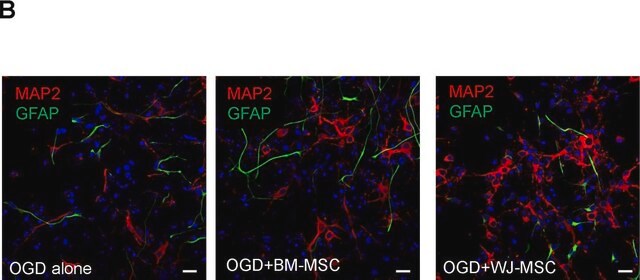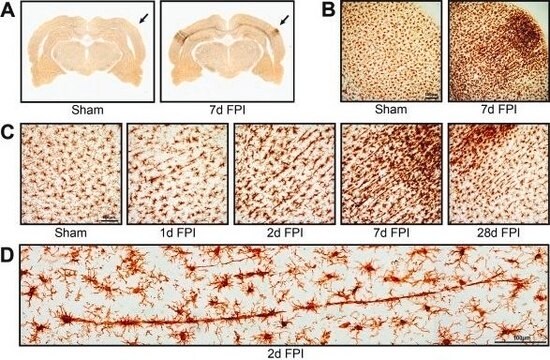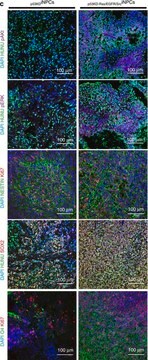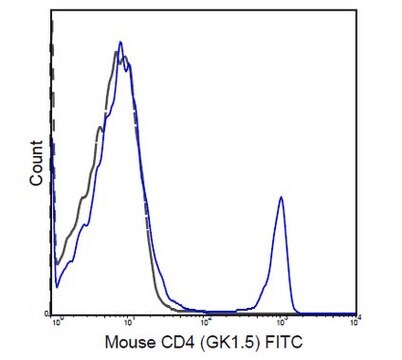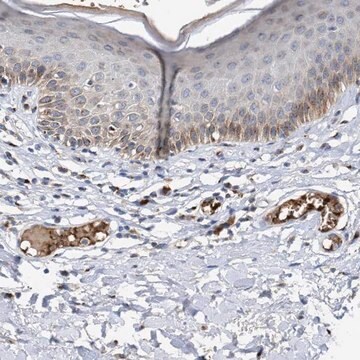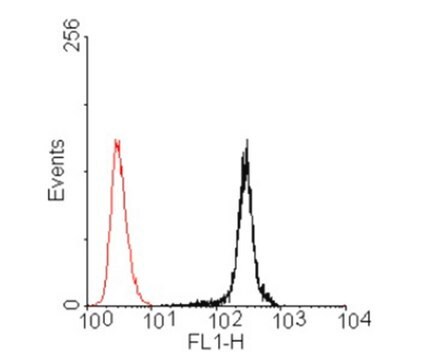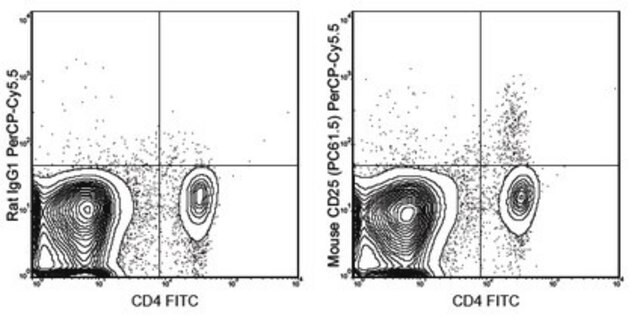MABF414
Anti-CD4 Antibody (mouse), PE-Cy7, clone GK1.5
clone GK1.5, 0.2 mg/mL, from rat
Synonym(s):
T-cell surface glycoprotein CD4, T-cell differentiation antigen L3T4, T-cell surface antigen T4/Leu-3, CD4
About This Item
Recommended Products
biological source
rat
Quality Level
conjugate
PE-Cy7
antibody form
purified antibody
antibody product type
primary antibodies
clone
GK1.5, monoclonal
species reactivity
mouse
concentration
0.2 mg/mL
technique(s)
flow cytometry: suitable
immunohistochemistry: suitable
immunoprecipitation (IP): suitable
isotype
IgG2bκ
UniProt accession no.
shipped in
wet ice
target post-translational modification
unmodified
Gene Information
mouse ... Cd4(12504)
General description
Immunogen
Application
Inflammation & Immunology
Quality
Flow Cytometry Analysis: 0.25 µg of this antibody detected CD4 in one million C57Bl/6 splenocytes.
Physical form
Storage and Stability
Disclaimer
Not finding the right product?
Try our Product Selector Tool.
Storage Class Code
12 - Non Combustible Liquids
WGK
nwg
Flash Point(F)
Not applicable
Flash Point(C)
Not applicable
Regulatory Listings
Regulatory Listings are mainly provided for chemical products. Only limited information can be provided here for non-chemical products. No entry means none of the components are listed. It is the user’s obligation to ensure the safe and legal use of the product.
JAN Code
MABF414:
Certificates of Analysis (COA)
Search for Certificates of Analysis (COA) by entering the products Lot/Batch Number. Lot and Batch Numbers can be found on a product’s label following the words ‘Lot’ or ‘Batch’.
Already Own This Product?
Find documentation for the products that you have recently purchased in the Document Library.
Our team of scientists has experience in all areas of research including Life Science, Material Science, Chemical Synthesis, Chromatography, Analytical and many others.
Contact Technical Service